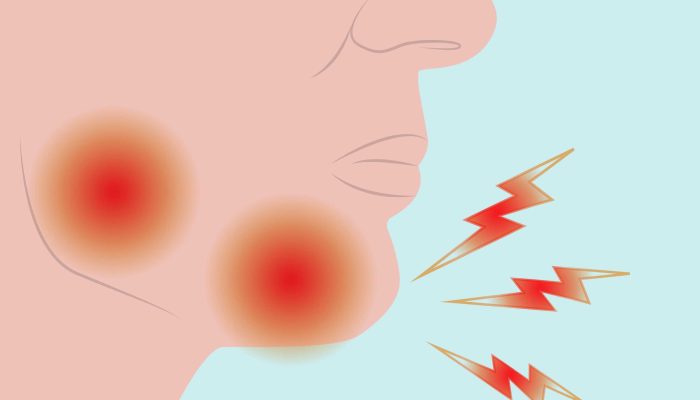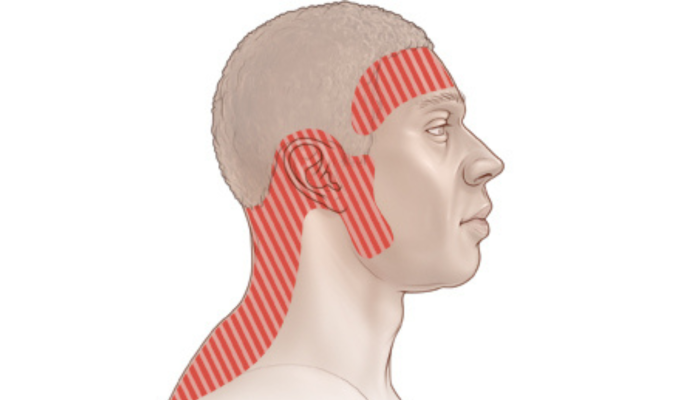
Experiencing neck pain can be quite uncomfortable and disruptive to daily life. Whether it’s a strained muscle, a pulled muscle, or simply stiffness, understanding the causes and appropriate treatments can make a significant difference. This guide will explore common causes of neck pain, effective treatment options, and strategies for prevention.
Other Conditions That Cause Neck Pain
Neck pain can arise from various conditions beyond simple muscle strain or tightness. Some common causes include:
- Cervical Spondylosis: This age-related condition involves the degeneration of the cervical spine’s discs and joints, leading to neck stiffness and pain.
- Herniated Disc: When a disc in the cervical spine bulges out, it can press on nearby nerves, causing pain and discomfort.
- Whiplash: This injury, typically resulting from a sudden jerking motion of the head, can lead to severe neck pain and stiffness.
- Pinched Nerve: Compression of a nerve in the cervical spine can cause pain that radiates down the arm.
- Rheumatoid Arthritis: This autoimmune condition can cause inflammation in the cervical joints, leading to neck pain.
Understanding these underlying conditions is essential for addressing neck pain effectively.
Neck Pain Treatment and Remedies
Apply Heat or Ice
Applying heat or ice can offer significant relief for neck pain. Ice packs can reduce inflammation and numb the affected area, while heat packs can help relax tight muscles and improve blood flow. Alternate between heat and ice for optimal results, depending on the stage of your pain and personal comfort.
Take Over-the-Counter (OTC) Pain Relievers
Over-the-counter pain relievers, such as ibuprofen or acetaminophen, can help manage neck pain. These medications reduce inflammation and alleviate discomfort. Always follow the dosage instructions and consult with a healthcare provider if you have any underlying health conditions.
Stretch but Avoid Sudden Movements
Gentle stretching exercises can help alleviate neck stiffness and improve flexibility. Focus on slow, controlled movements to avoid exacerbating the pain. Avoid sudden or jerky movements, as they can strain the neck muscles further.
See a Physical Therapist (PT)
A physical therapist can design a personalized exercise program to address your specific neck pain issues. They can also provide guidance on proper posture and body mechanics, which can be crucial in managing and preventing neck pain.
Consider Chiropractic Care
Chiropractic care involves spinal adjustments to correct misalignments and improve spinal function. Many people find relief from neck pain through chiropractic treatments, though it’s essential to choose a qualified and experienced chiropractor.
Book a Massage
Massage therapy can be effective in relieving neck pain by targeting tight muscles and improving circulation. A professional massage therapist can help reduce muscle tension and promote relaxation, offering relief from neck pain.
Try Acupuncture
Acupuncture involves inserting fine needles into specific points on the body to relieve pain and promote healing. Some people find acupuncture helpful for managing neck pain and improving overall well-being.
Limit Physical Activity That Bothers Your Neck
Avoid activities that exacerbate your neck pain. Engaging in gentle exercises and avoiding heavy lifting or strenuous activities can help prevent worsening your condition. Listen to your body and modify activities as needed.
How to Prevent Neck Stiffness
Reduce Stress
Stress can contribute to muscle tension and exacerbate neck pain. Practice stress-reducing techniques such as meditation, deep breathing exercises, or mindfulness to help manage stress levels and prevent neck stiffness.
Exercise Regularly
Regular exercise, including activities that promote flexibility and strength, can help maintain neck health. Incorporate exercises that target the neck and upper back muscles to support and stabilize the cervical spine.
Create an Ergonomic Workplace
Ensure your workspace is ergonomically designed to support good posture. Adjust your chair, desk, and computer monitor to promote a neutral neck position and reduce strain on your neck muscles.
Be Mindful of How Long You Sit
Prolonged sitting can lead to neck stiffness and discomfort. Take regular breaks to stand up, stretch, and move around. Consider incorporating standing desks or adjustable workstations to reduce the amount of time spent sitting.
Limit How Long You Look at a Smartphone
Extended use of smartphones can lead to poor posture and neck strain, often referred to as “text neck.” Limit the time spent looking down at your phone and consider using voice commands or hands-free options to reduce neck strain.
Don’t Drive for Long Periods at a Time Without Breaks
Driving for extended periods can strain the neck due to poor posture and lack of movement. Take regular breaks during long drives to stretch and relax your neck muscles.
Change Your Sleep Position
Your sleep position can impact neck pain. Use a supportive pillow that maintains proper neck alignment and avoid sleeping on your stomach, as this position can strain the neck.
When to See a Doctor
While many cases of neck pain can be managed with at-home remedies, certain symptoms warrant a visit to a healthcare provider. Seek medical attention if you experience:
- Severe or persistent pain that does not improve with home treatments.
- Pain accompanied by numbness, tingling, or weakness in the arms or hands.
- Difficulty moving your head or severe stiffness.
- Pain resulting from a recent injury or trauma.
A healthcare professional can provide a thorough evaluation and recommend appropriate treatments based on your specific condition.
Takeaway
Neck pain can be disruptive, but understanding the causes and effective treatments can help you manage and alleviate discomfort. By incorporating preventive measures and seeking professional care when necessary, you can maintain neck health and improve your overall well-being. If you have persistent or severe neck pain, consult a healthcare provider to explore further treatment options and get personalized advice.
Effective Treatment Options for Neck Pain
Apply Heat or Ice
When dealing with neck pain, applying heat or ice can be a straightforward and effective remedy. Ice is particularly useful in the initial stages of pain as it helps reduce inflammation and numb the area. Apply an ice pack wrapped in a cloth for 15-20 minutes several times a day. Heat therapy, on the other hand, is best for relaxing tight muscles and improving blood circulation. Use a heating pad or a warm cloth for 15-20 minutes at a time. Alternating between heat and ice can often provide the best results.
Take Over-the-Counter (OTC) Pain Relievers
Over-the-counter pain relievers can provide significant relief for neck pain. Medications such as ibuprofen or acetaminophen can reduce inflammation and alleviate discomfort. Always adhere to the recommended dosage and consult with a healthcare provider if you have pre-existing conditions or are taking other medications. OTC pain relievers can be a temporary solution while you explore other treatment options.
Stretch but Avoid Sudden Movements
Gentle stretching can be beneficial in relieving neck stiffness and improving flexibility. Perform slow, controlled stretches to avoid aggravating the pain. For example, gently tilt your head towards each shoulder and hold the position for 15-30 seconds. Avoid sudden or jerky movements, as they can strain the neck muscles further. Consistent stretching can enhance neck mobility and reduce overall discomfort.
See a Physical Therapist (PT)
A physical therapist can provide specialized exercises and techniques tailored to your specific neck pain. They can design a personalized program to strengthen and stretch the neck muscles, improve posture, and address any imbalances. Physical therapy can also include modalities such as heat, ice, or electrical stimulation to further aid in pain relief and recovery.
Consider Chiropractic Care
Chiropractic care focuses on spinal alignment and can be effective in treating neck pain. Chiropractors use manual adjustments to correct misalignments in the spine, which can alleviate pressure on nerves and reduce pain. While many people find relief through chiropractic care, it’s essential to choose a qualified practitioner and discuss your specific symptoms and concerns.
Book a Massage
Massage therapy can help relieve neck pain by targeting tense muscles and improving blood flow. A licensed massage therapist can use techniques such as deep tissue massage or trigger point therapy to address muscle knots and promote relaxation. Regular massages can help manage chronic neck pain and contribute to overall muscle health.
Try Acupuncture
Acupuncture is a traditional Chinese medicine practice that involves inserting thin needles into specific points on the body. This technique is believed to stimulate the body’s natural healing processes and relieve pain. Many individuals find acupuncture helpful for managing neck pain, though results can vary. Consult with a certified acupuncturist to explore this option.
Limit Physical Activity That Bothers Your Neck
Engaging in activities that exacerbate your neck pain can hinder your recovery. If certain movements or tasks worsen your symptoms, it’s crucial to avoid them until you’ve seen improvement. Focus on gentle exercises and avoid heavy lifting or activities that put undue stress on your neck.
How to Prevent Neck Stiffness
Reduce Stress
Chronic stress can contribute to muscle tension and exacerbate neck pain. Incorporate stress-reducing practices into your daily routine, such as meditation, yoga, or deep breathing exercises. Managing stress effectively can help prevent neck stiffness and improve overall well-being.
Exercise Regularly
Regular exercise is vital for maintaining neck health and preventing pain. Incorporate exercises that strengthen the neck and upper back muscles, as well as activities that enhance flexibility. A well-rounded exercise routine supports overall spinal health and helps reduce the risk of neck stiffness.
Create an Ergonomic Workplace
Ensure your workspace is designed to support good posture and reduce neck strain. Adjust your chair, desk, and monitor so that your head and neck are aligned in a neutral position. Use ergonomic accessories such as a supportive chair or a monitor stand to maintain proper posture throughout the workday.
Be Mindful of How Long You Sit
Prolonged sitting can contribute to neck stiffness and discomfort. Take regular breaks to stand up, stretch, and move around. Consider setting a timer to remind yourself to take breaks and incorporate movement into your daily routine to prevent neck strain.
Limit How Long You Look at a Smartphone
Extended use of smartphones can lead to poor posture and neck strain, often referred to as “text neck.” To minimize strain, limit the time spent looking down at your phone. Use voice commands, or hold the phone at eye level to reduce neck flexion and strain.
Don’t Drive for Long Periods at a Time Without Breaks
Driving for extended periods can put strain on the neck due to poor posture and lack of movement. Schedule regular breaks during long drives to stretch and relax your neck muscles. Adjust your car seat and headrest to support proper neck alignment and reduce strain.
Change Your Sleep Position
Your sleep position plays a crucial role in neck health. Use a supportive pillow that maintains proper neck alignment and avoid sleeping on your stomach, as this position can strain the neck. Consider experimenting with different pillows and sleeping positions to find what works best for you.
When to See a Doctor
If you experience persistent or severe neck pain despite trying home remedies, it’s important to seek medical attention. Consult a healthcare provider if you have:
- Severe or Persistent Pain: Pain that does not improve with rest or treatment may require medical evaluation.
- Neurological Symptoms: Numbness, tingling, or weakness in the arms or hands could indicate nerve involvement.
- Difficulty Moving Your Head: Severe stiffness or limited range of motion may require further assessment.
- Recent Injury or Trauma: Neck pain resulting from a recent accident or injury should be evaluated by a healthcare professional.
A thorough evaluation by a healthcare provider can help identify the underlying cause of your neck pain and guide you toward appropriate treatment options.
Takeaway
Neck pain can be disruptive, but understanding its causes and effective treatments can help you manage and alleviate discomfort. By implementing preventive measures and seeking professional care when necessary, you can maintain neck health and enhance your quality of life. If you experience persistent or severe neck pain, consult a healthcare provider for personalized advice and treatment options. Taking proactive steps to address and prevent neck pain can lead to a more comfortable and pain-free life.
If you have any questions for us, you can see more at: heathcarenow, Youtube, Twitter(X),…
See more of our other articles: What is Jaw Pain ?, Catabolism vs. Anabolism: What’s the Difference?, Tennis Ball Massage for Myofascial Trigger Points





